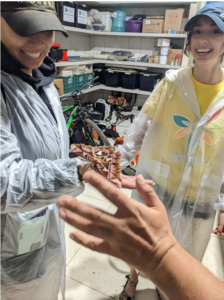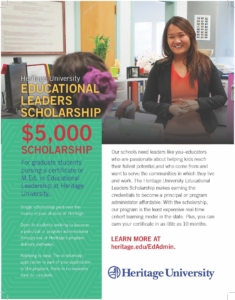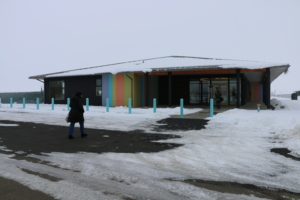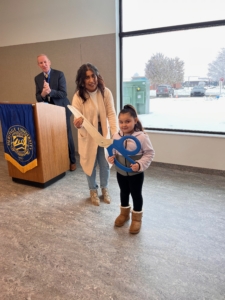The Gift of Gratitude
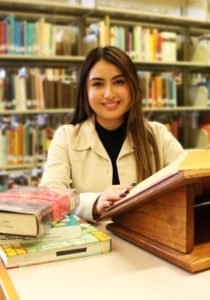
Perla Bolanos
The Gift of Gratitude
For this issue of Wings, we reached out to students and asked them to tell us about a pivotal moment in their life that had a profound effect on their views of themselves and their world. Perla Bolanos, a senior who is getting ready to graduate with a Bachelor of Arts in Business Administration, submitted this essay.
I remember my first day of third grade in the United States—the thrill, excitement, uneasiness, and anxiety of the unknown. I wore one of my best dresses with shoes I had painted the night before to cover the scratches. My mother was so excited for me to start school she told me, “Vas a tener muchas amigas y vas a aprender mucho mi niña. – You’re going to have a lot of friends, and you’re going to learn a lot, my little girl.”
My mother brushed my hair so hard, putting it into a high ponytail with a bow, and used jugo de limon so my hair wouldn’t fall. With one last look in the mirror, I carried the backpack I had brought with me from Mexico and headed out on my way to live the “American Dream.”
The school was big and had lots of space to run and play. It was in one of the nicest neighborhoods in Salinas, California, where my godmother lived. She was the only reason I had the opportunity to attend that school in the first place. My parents, brother, and I lived in a small studio apartment behind one of my godmother’s restaurants outside the city. A small school was located a couple of blocks from my home, but my parents insisted on enrolling me in a “better school.” Everyone wanted me to receive a quality education, meet new people, learn, and get accustomed to my new home.
When I walked through the door into my classroom, the look on my third- grade teacher’s face was something I will never forget. She stared at my face, clothes, and shoes; she stared at me and who I was. She knew I was not like the usual students that attended her class, and she was right. I was far from being like her other students. Most of them were Caucasian. They were dressed in nice clothes and shoes, and I was just the girl coming from Mexico. I also saw the look on the faces of the other kids. They looked at me like I must be lost, like I didn’t belong there. After the teacher introduced me to the rest of the class, she guided me to the back of the room to a small desk with a chair surrounded by books, far from the rest of the students. As I took in my surroundings, I wondered how I went from being the top student in my school to being the “poor Mexican girl,” as my classmates called me. While the others were learning grammar and about the solar system, I was stuck relearning the alphabet and numbers, this time in English, despite already being taught all this when I was in Mexico.
When I grew tired of staring at the same activities, I organized the stacks of books that surrounded me. I began losing myself in the pages of these books. One was my best friend, an English dictionary. This dictionary gave me the support my teacher and classmates could not give me. I found myself scanning through the pages, trying to memorize each word, and forming sentences that later would become pages of poems and stories I wrote. Creative writing became my escape and part of my identity. It helped me overcome the language barrier I encountered throughout my journey. The written word allowed me to express my feelings in this new language when I could not express them out loud.
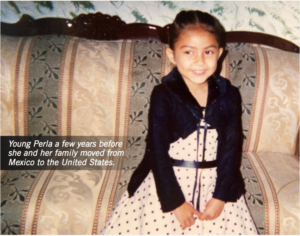
I have mixed emotions when I reflect on my third-grade year. While I am sad for the little
girl who had to endure such an unpleasant school experience, I am immensely grateful for the love of learning I developed as those books surrounded me.
I came to realize that I could take control of my education, that the same little girl and the woman I am today are capable and resilient, and that education is a form of wealth that can never be taken away from me.
Today, I am a senior at Heritage University. Graduation is only a few weeks away. I cannot help but think about eight-year-old me and how far I have come from that third- grade classroom. Attending Heritage University brought me new perspectives into my life. I received an education that I once thought I did not deserve, along with numerous opportunities that have helped me grow as a scholar, professional, leader, and, most importantly, as a first- generation Latina.
My mother once told me, “Education es la unica herencia que te puede dar mija” “Education is the only heritage I can give you, Mija,” and it has been the greatest gift I have received.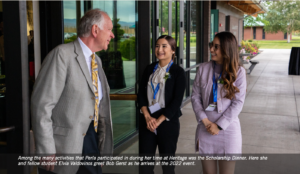
It took me a long time to discover who I am and find my voice to express myself, my thoughts, and my visions. To this day, I wonder, “can I reach someone with my words? Can I make a difference?” While those are questions that remain to be answered, I know that as I move forward out into the professional world, I will keep the lessons I’ve learned close to my heart and will do my best to honor my mother’s words and all those who helped me along the way.
Pursuing higher education was always a dream, and now I live it. It is a new chapter— something I have yearned for. This is my American dream coming true.


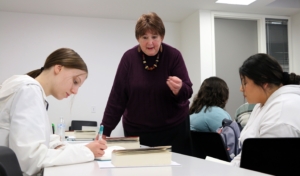
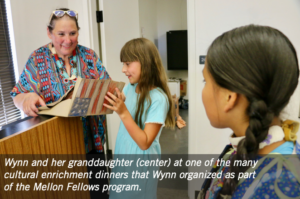
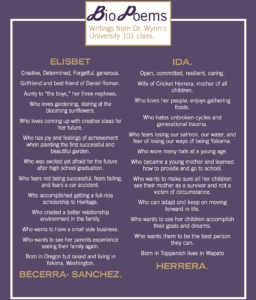
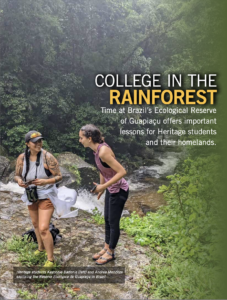
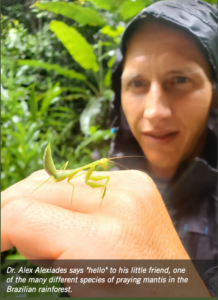
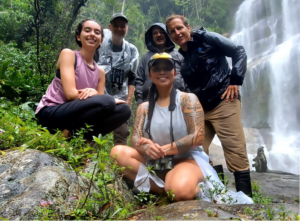 In the native Tupi language, Guapiaçu means “big spring of a river.” But the river here, like the rainforest that holds it, has been greatly altered, its banks laid bare for farming and grazing cattle, its flow in part channeled for human use, sometimes reinforced with concrete.
In the native Tupi language, Guapiaçu means “big spring of a river.” But the river here, like the rainforest that holds it, has been greatly altered, its banks laid bare for farming and grazing cattle, its flow in part channeled for human use, sometimes reinforced with concrete.